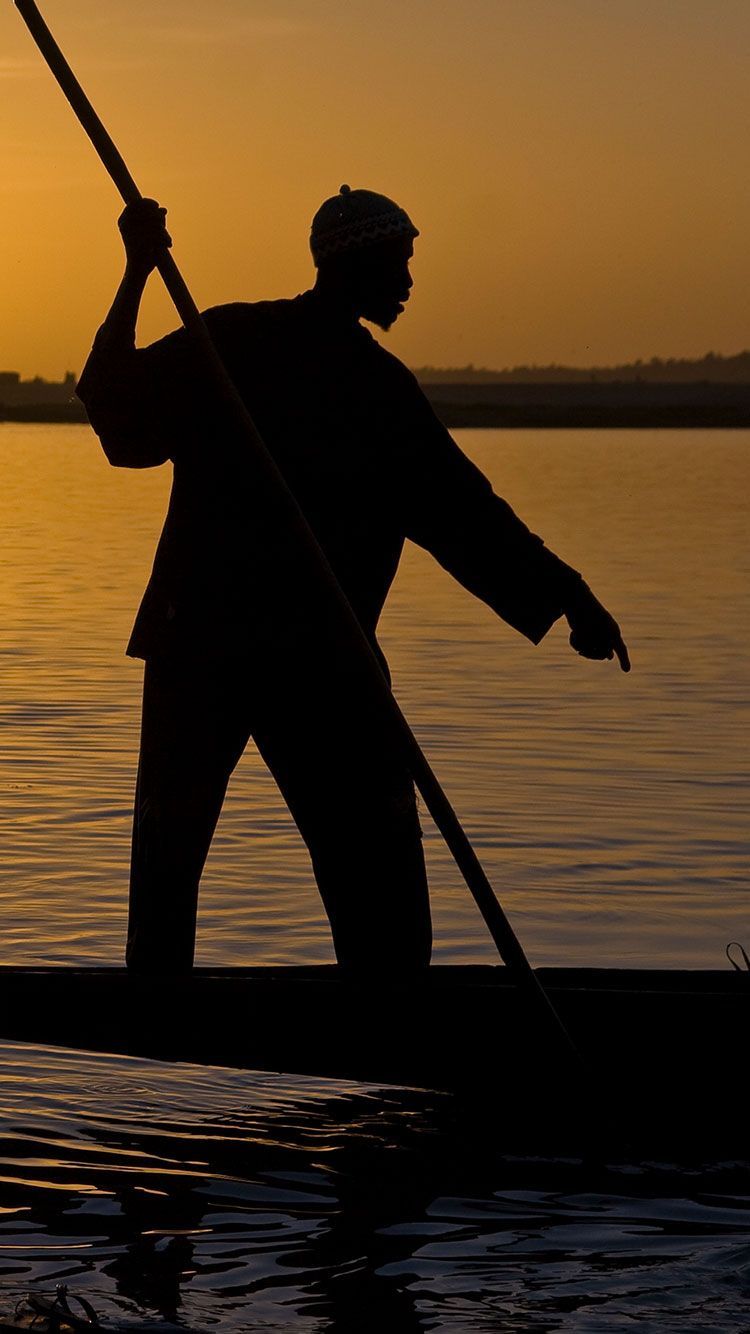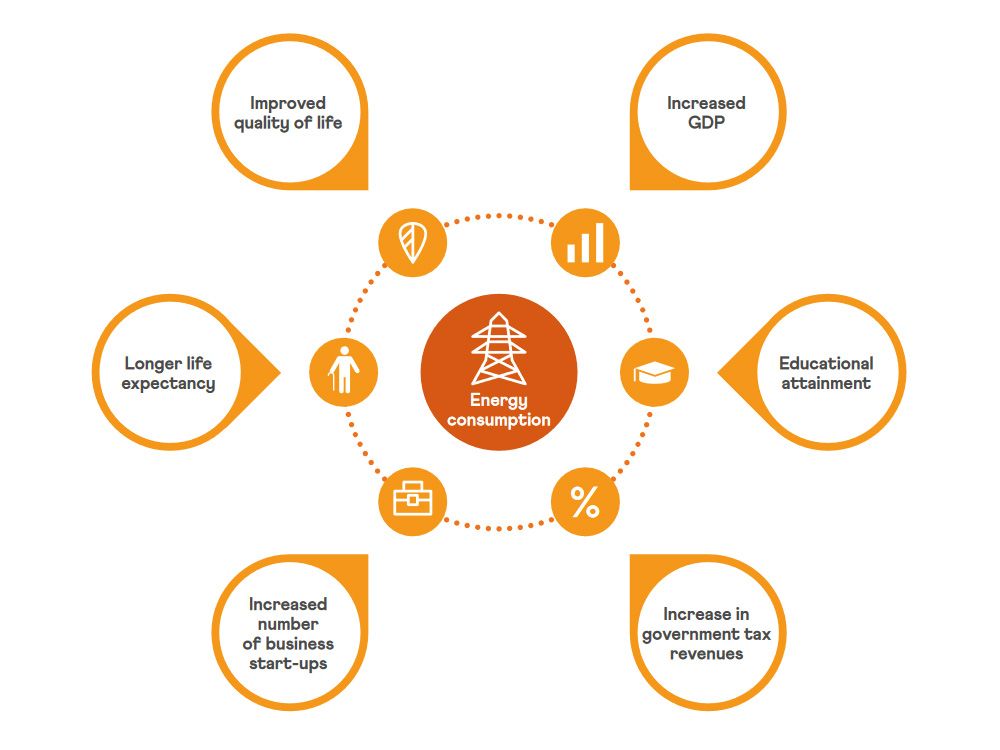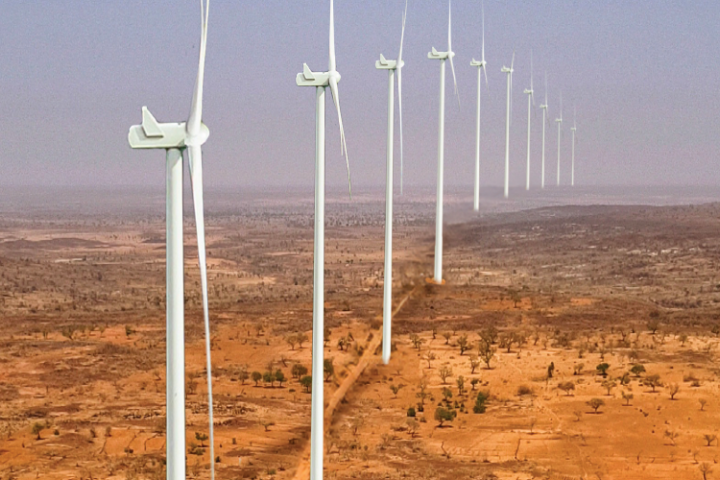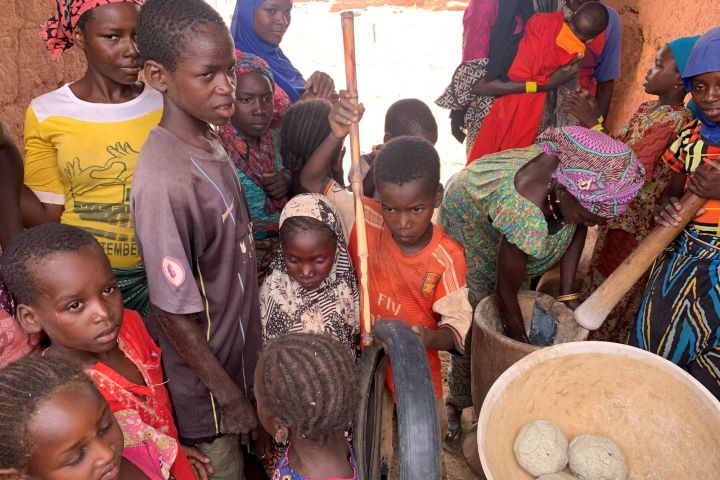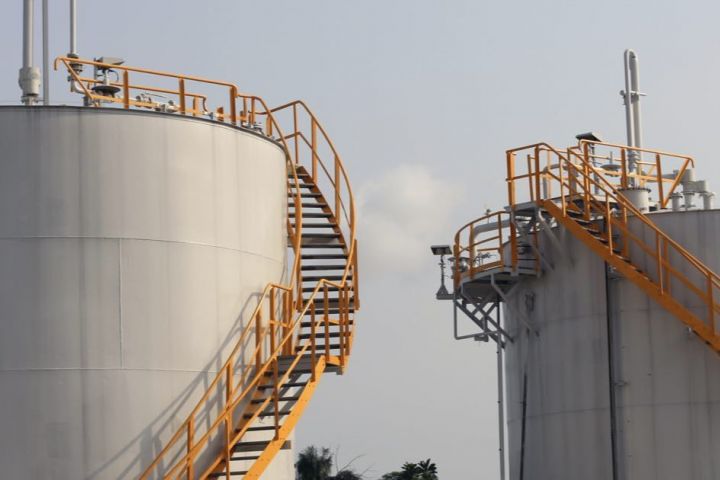What makes us special
We are passionately focused around the achievement of our corporate purpose. We operate in jurisdictions which are often viewed as challenging by peers. We embrace these challenges as opportunities and understand that these are the jurisdictions where we can have the greatest impact.
We have a growth/cash flow re-investment orientated mindset. We take a patient and long-term view as to business performance and development. We believe in human talent development. We operate and hold ourselves accountable to high standards of performance and behaviour. We make things happen.
Our core beliefs
We are focused on Africa as we believe the continent’s energy poverty is one of the most urgent and important problems facing the world today.
We invest in Hydrocarbons AND Renewables as we believe both are critical components of the 2030-50 energy mix.
Access to energy is essential for economic development and human progress. It is positively correlated with many other key human development metrics, including those associated with educational attainment, life expectancy and quality of life, and, as such, is the critical enabler of human activity.
We are focused on Africa as we believe the continent’s
energy poverty is one of the most urgent and
important problems facing the world today
The impact of energy poverty in Africa is clear to see; 36% of those people living in Sub-Saharan Africa are estimated by the World Bank to be living in extreme poverty (i.e. earning less than US$2.15 per day). Africa is home to 18% of humanity, but only 57% of her people are estimated to have access to grid connected electricity (in any form). Over 600 million of her people lack access to electricity. Despite her size and low electricity access, however, Africa is estimated to receive only 5% of all global energy investment¹.
We invest in hydrocarbons AND renewable energy
as we believe both are critical components of the
2030-50 energy mix
Over 75% of today’s global energy mix is provided by hydrocarbons, 54% of which is from oil and gas. Approximately 42% of all global capital expenditures relate to energy projects. Similarly, 18% of OECD GDP is spent on energy end use. It is clear that: (1) oil and gas production is a critical contributor to the current functioning of the global economy and the maintenance of human living standards; and (2) this is clearly evidenced by the money people are prepared to spend to sustain their “status quo” quality of life.
Energy transitions take (a lot of) time
It has taken decades for major energy sources to provide a significant share of global supply:
Previous energy transitions took over 50 years, and the modern renewable energy transition only began around 2015. The extent to which the world requires oil and gas in the future will depend on the absolute and relative rate of renewable energy and carbon mitigation technological improvements.
In principle, we are willing to invest in any African country where projects will meet our investment criteria (i.e. financial, legal structure, social impact and materiality) as we believe:
That all Africans have the right to reap the benefits of economic development.
That jurisdiction and associated project risks can be identified and mitigated down to acceptable tolerance thresholds (including through diversification) – which are typically higher than those of jurisdictions and projects being conducted in the OECD.
In our own ability to build highly motivated teams, capable of delivering projects in such environments.
UK vs. Sub-Saharan Africa: expected life outcomes at birth
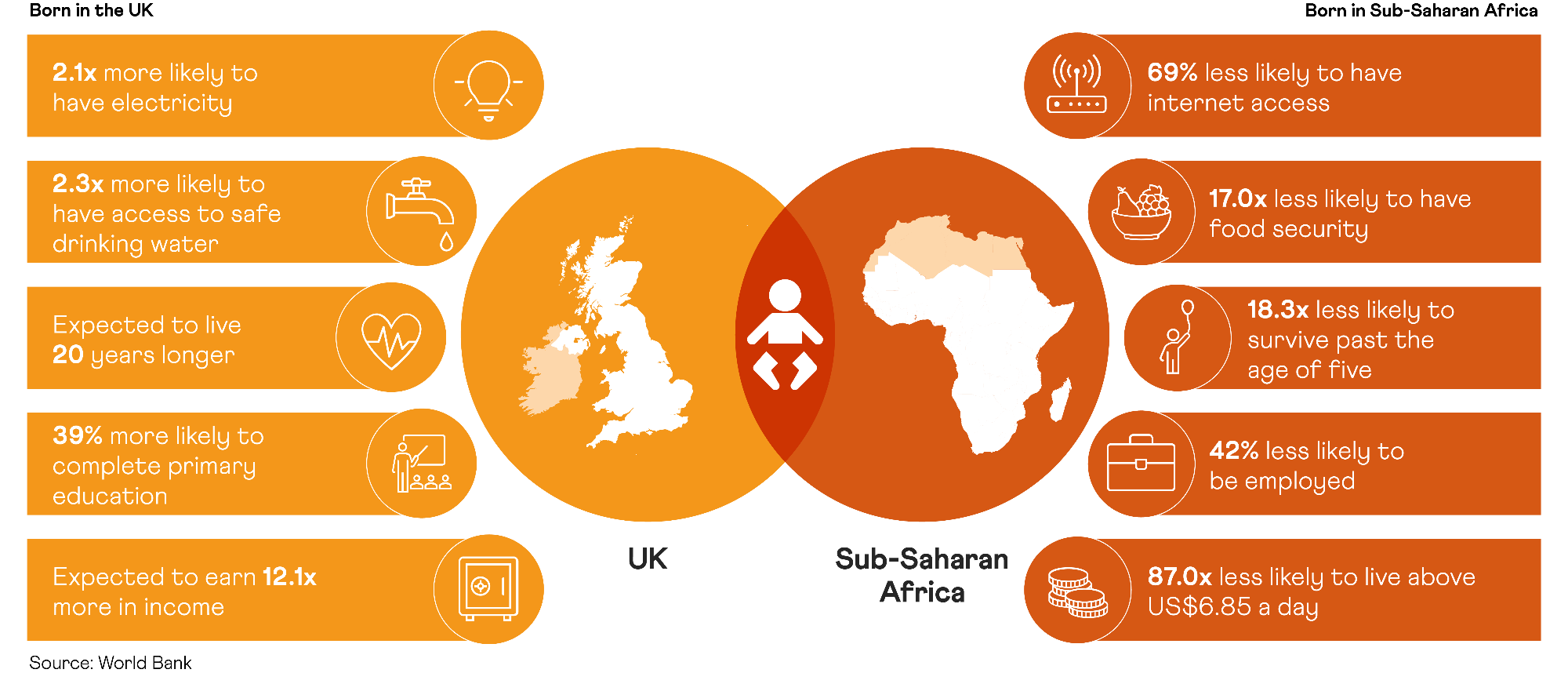
Private sector investment and trade, inter-alia, stimulate economic growth, enhance the efficiency of resource allocation, facilitate technology transfer, create jobs, reduce poverty, generate government revenue, and foster market integration and stability.
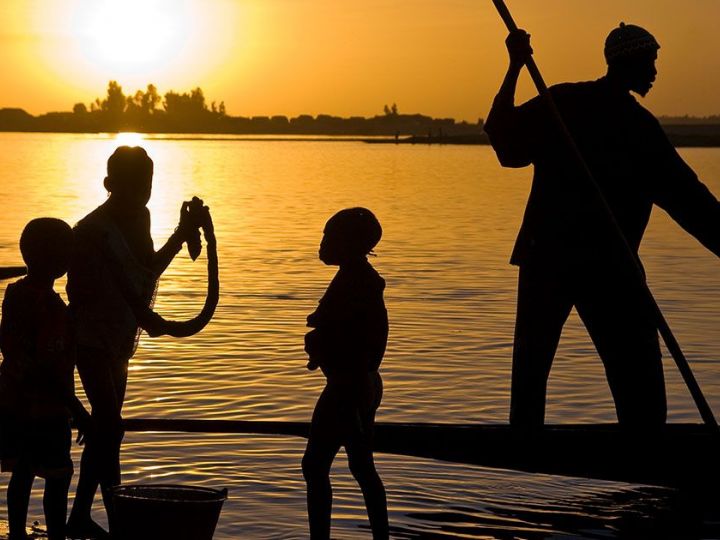
Give a person a fish and you feed them for a day. Teach a person to fish and you feed them for a lifetime”
Anonymous
1. Gapminder.org
